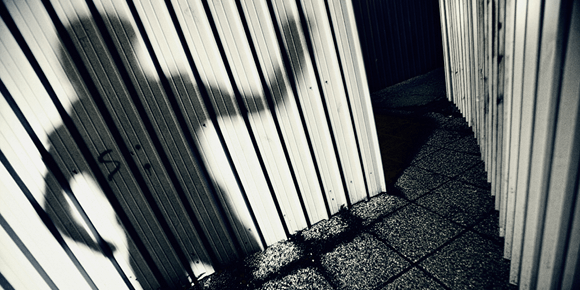REALTORS® can stay safe by being prepared for the unexpected.
By Cheryl Winokur Munk
Staying safe on the job should be a big concern for all REALTORS®. Indeed, 40 percent of real estate professionals polled for the National Association of REALTORS® 2015 Member Safety Report say they’ve been in a situation that made them fear for their personal safety or the safety of their personal information.
While REALTORS® can’t always avoid danger, prevention, avoidance and self-preservation techniques can help minimize risk, according to Erica Ramus, CRS, a broker and owner of Ramus Realty Group in Pottsville, Pennsylvania. “Many agents don’t realize how dangerous this industry can be,” she says.
Strategies REALTORS® employ to stay safe include pre-screening customers, keeping co-workers apprised of their whereabouts, having pre-planned escape routes and taking self-defense classes.
Safety Dos and Don’ts
Do:
- Keep your phone and car keys on your person at all times.
- Pre-screen all prospects in your office or a public place before showing them a property.
- Make sure a colleague, friend or relative knows your whereabouts. Have a code word or phrase that signals you’re in trouble and need someone to call 911.
- Leave one or two doors unlocked during an open house, in case a quick escape becomes necessary.
- Yell “fire” instead of “help” to attract more attention.
- Take a self-defense class.
Don’t:
- Wear flashy jewelry.
- Bring a purse to an open house.
- Let your car get boxed in. Park so you can make a quick getaway.
- Turn your back to a customer, ever.
- Hesitate to leave a property or cut short a customer meeting if you feel uncomfortable.
- Ignore your instincts. Get away first, ask questions later.
Ramus, for instance, makes it a policy to meet customers in the office or another public setting before she goes out with them alone. Potential customers sometimes balk, but it’s a non-negotiable safety precaution in her office — even if it means losing a sale.
A while back, Ramus got a call from a man who wanted her to hop in the car right away to show him one of her listings. She refused, explaining that she would be happy to make an appointment to show him the property at another time, but she wanted to meet him at the office first. He became belligerent, but she stood her ground and politely referred him to another agency in town that wound up making the sale. Ramus had to share the commission, but she didn’t mind. “Safety first,” she says.
Part of staying safe means keeping others informed about your whereabouts. In Ramus’s office, for example, the agents are encouraged to share their schedules using a Google calendar. She suggests they include the time and date as well as the name of the person they are meeting, that person’s cell phone or email address, and the itinerary.
It’s also good to have a safety buddy you can call in case you run into a problem. Anne Feste, CRS, a REALTOR® with The Grubb Co. in Oakland, California, suggests having a pre-determined code phrase like, “Can you send me the Jones file?” to inconspicuously alert your safety partner to call the police.
Expect the Unexpected
Staying safe also means being prepared for when things don’t go according to plan. Feste makes sure to wear clothes that allow her to keep her phone and car keys on her body and she never brings her purse into an open house. She advises agents who do carry a purse to tuck it away in their car trunk before arriving on site.
To help protect herself, Nadine Krasnow, CRS, owner/broker at Falmouth Fine Properties in Falmouth, Massachusetts, took R.A.D. self-defense training for women about three years ago. It only took a few hours and she takes yearly refresher classes at no additional cost. R.A.D. classes are offered nationally, often through police departments, and always with a certified trainer.
She believes having the R.A.D. training earlier in her career might have helped her better handle a situation in which a customer bumped up against her in the basement of a house she was showing. She managed to get upstairs and out the front door without further incident, but she feels R.A.D. training would have helped her react faster and not feel so vulnerable. She no longer goes into basements with customers who are strangers.
For her protection, she also encourages owners to be home during open houses, a somewhat unconventional approach. “With just a bit of coaching, this goes really well, and establishes a friendly, open atmosphere — while keeping the agent from being alone and at risk,” she says.
Stop, Drop and Run
If for some reason you do end up in an uncomfortable situation, the trick is to get away as fast as possible. About three years ago, Ramus took a potential buyer into a vacant apartment she didn’t know was occupied by squatters. They got out right away without incident, but it left an impression.
“Until you’re in a situation where your heart is racing and you don’t know what will happen next, it doesn’t really hit home how dangerous the job can be,” she says.
John C. Stark, CRS, managing broker for the Des Moines, Iowa, office of Coldwell Banker, tells agents who find themselves in dangerous situations to yell “fire” as they’re running away. It’s a proven way of drawing attention, whereas a call for “help” doesn’t always yield the desired results, says Stark, a former Air Force intelligence officer who has conducted extensive safety training for 500 agents.
Other tips: Always park your car in a way that will allow you to make a quick getaway if necessary. And never turn your back, not even for a moment. Always let clients go in front of you — when going into a house, as you are touring it and especially when walking up or down flights of stairs.
Importantly, REALTORS® need to trust their guts when something about a client or situation seems off, Stark says. “You need to act on your instincts every single time. They will never fail you.”
Find out more in the 2015 NAR Member Safety Report.








